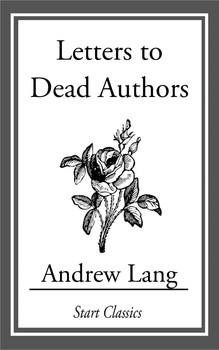LETTER–To Edgar Allan Poe
byLetter to Edgar Allan Poe opens with a reflection on the peculiar hostility that followed Poe even after death, especially from fellow American writers. While many hailed him as a literary master abroad, his own country often treated him with skepticism. This may have been fueled by his sharp criticism and bold commentary, which spared no one. Poe’s honesty in literary reviews unsettled a scene unprepared for such directness. In doing so, he gained as many enemies as admirers. It is ironic that a man of such vast creativity was remembered by some not for his genius but for his critiques.
The letter explores the sorrowful reality of Poe’s career, where his reviews, though insightful, were often seen as attacks rather than contributions. His decision to critique the works of his peers was a survival strategy, not a malicious choice. Yet that choice helped cement a misunderstood public image. Had he lived in an era where artists received fairer rewards for merit, his life may have been less harsh. Recognition might have come sooner if publishing had been kinder or more commercially just. The letter laments that a voice so profound had to rise through personal and professional hardship, shaped not only by talent but by the necessity to endure.
While Poe’s prose revealed chilling brilliance, it is his poetry that defined his vision of beauty. The letter praises how Poe managed to write with a cadence and mood unmatched by others in his time. His definition of poetry—“the rhythmic creation of the beautiful”—remains one of the most quoted descriptions of the form. Though he avoided moral lessons in his verse, favoring mystery and musicality, that choice made his poetry feel like a dream rather than a sermon. Critics often misunderstood his resistance to didacticism, mistaking it for shallowness. Yet Poe knew that beauty, not instruction, lingers in the memory of a reader.
Poe’s rejection of moral messaging, though controversial, made his work unique in a literary world saturated with virtue and allegory. Still, it is “The Raven,” rich in melancholy and hypnotic rhythm, that remains his most enduring piece. Despite his own preference for abstraction in poetry, this particular poem captures both story and song. The letter questions whether Poe’s theories held up to his success, as “The Raven” resonates deeply beyond aesthetic principles. There’s an irony in the idea that Poe’s most famous work contradicts the narrow rules he set. In challenging traditional ideals, Poe expanded what poetry could achieve emotionally.
Literary traditions across history—from Homer’s epic clarity to Molière’s wit—show that poetry and drama thrive in many forms. The author gently critiques Poe for his rigid standards, noting that greatness can be found in lessons, laughter, and plainspoken heroism, too. Yet he does not diminish Poe’s contribution but situates it alongside broader literary values. Through this lens, Poe is less an isolated figure and more a vital thread in a diverse tapestry. His visions of the macabre, the beautiful, and the surreal continue to influence literature and culture worldwide. To read Poe is to enter a world where shadows dance and sound is as meaningful as sense.
In closing, the letter is not merely an evaluation of Poe’s work but a compassionate look at his life. It admires the discipline he applied to his art and acknowledges the cost of that devotion. Poe’s legacy endures not because he fit into the mold of his time, but because he broke it. In doing so, he gave readers permission to explore the strange, the sorrowful, and the sublime. The world of letters owes him more than it ever gave in return. His shadow may have darkened his own century, but it cast a light for every generation that followed.

